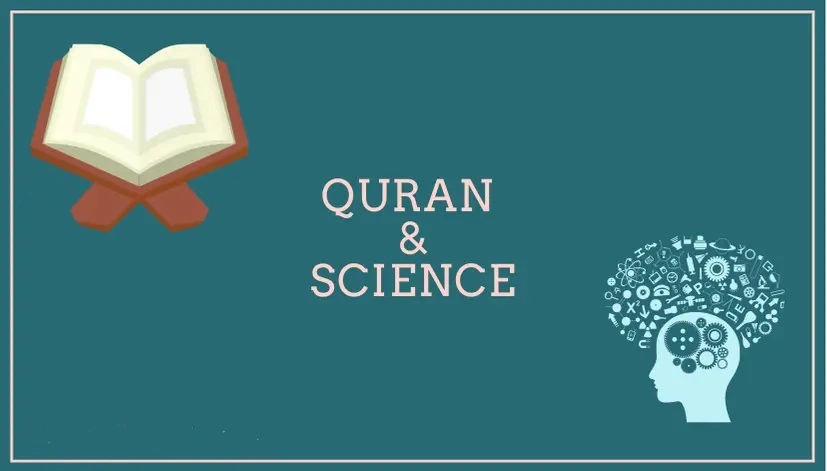Introduction
The Quran, the holy book of Islam, is revered by Muslims worldwide not only for its spiritual guidance but also for its profound insights into various aspects of life. In recent times, the Quran’s compatibility with modern scientific discoveries has garnered significant attention, sparking intriguing discussions among scholars and scientists alike.
Scientific Miracles in the Quran
Embryology:
One of the most striking examples of scientific accuracy in the Quran is its description of embryological development. The Quran discusses stages of fetal development in remarkable detail, centuries before modern science uncovered similar findings.
Astronomy:
The Quran contains verses that allude to astronomical phenomena, such as the expansion of the universe, celestial bodies orbiting in their respective orbits, and the interstellar nature of the cosmos.
Geology:
Verses in the Quran also hint at geological processes, including references to the formation of mountains and the role of tectonic activity in shaping the Earth’s surface.
Oceanography:
Descriptions of the ocean’s properties, such as its depths, darkness, and the barriers between bodies of water, are found in the Quran, aligning with modern oceanographic knowledge.
Botany:
The Quran mentions various botanical concepts, including the process of plant growth, the role of plants in ecosystems, and the diverse types of vegetation on Earth.
Physics:
Principles of physics, such as the laws of motion and the concept of relativity, are subtly hinted at in certain Quranic verses, reflecting an understanding beyond the book’s time.
The Quranic Approach to Science
Harmony between Religion and Science:
Contrary to popular misconceptions, the Quran promotes harmony between religion and science, emphasizing the importance of seeking knowledge and understanding the natural world.
Encouragement of Inquiry and Exploration:
The Quran encourages believers to ponder over the signs of creation and to explore the universe, fostering a spirit of curiosity and discovery.
Respect for Empirical Evidence:
While the Quran provides insights into various scientific phenomena, it also respects the importance of empirical evidence and rational inquiry.
Misinterpretations and Misconceptions
Cherry-picking Verses:
Some individuals cherry-pick Quranic verses to fit scientific narratives, ignoring the holistic message of the text and its broader context.
Ignoring Historical Context:
Misinterpretations often arise from disregarding the historical and cultural context in which the Quran was revealed, leading to erroneous conclusions.
Lack of Scientific Understanding in the Past:
Attempts to reconcile Quranic verses with contemporary scientific knowledge sometimes overlook the limitations of scientific understanding in earlier times.
Contributions of Muslim Scholars to Science
Golden Age of Islam:
During the Golden Age of Islam, Muslim scholars made significant contributions to various scientific disciplines, preserving and advancing knowledge from ancient civilizations.
Preservation and Translation of Ancient Knowledge
Muslim scholars played a crucial role in preserving and translating ancient Greek, Roman, Indian, and Persian texts, laying the foundation for further scientific inquiry.
Advancements in Various Fields:
Muslim scientists excelled in fields such as mathematics, astronomy, medicine, and optics, pioneering discoveries that shaped the course of human history.
Modern Scientific Discoveries and the Quran
Continual Relevance of the Quran:
Despite being revealed over fourteen centuries ago, the Quran remains relevant in light of modern scientific discoveries, reaffirming its timeless message.
Areas where Science Aligns with Quranic Teachings:
Numerous areas of convergence between scientific findings and Quranic teachings highlight the book’s inherent compatibility with the natural world.
Examples of Recent Discoveries:
Recent scientific breakthroughs, ranging from genetics and cosmology to ecology and climatology, continue to validate the Quran’s insights into the universe.
Debates and Criticisms
Skepticism from Non-believers:
Critics often question the validity of Quranic scientific miracles, attributing apparent correlations to mere coincidence or reinterpretation.
Responses from Scholars:
Islamic scholars respond to criticisms by emphasizing the Quran’s multifaceted nature and its invitation to contemplation rather than blind acceptance.
Open Dialogue and Exploration:
Engagement in open dialogue and scholarly discourse fosters a deeper understanding of the Quran’s relationship with science, encouraging critical thinking and intellectual exchange.
Conclusion
In conclusion, the Quran’s alignment with modern scientific discoveries underscores its enduring relevance and profound wisdom. By fostering a harmonious relationship between religion and science, the Quran invites believers and skeptics alike to explore the wonders of the universe with an open mind and a spirit of inquiry.
FAQs
Q1. Does the Quran contain explicit scientific explanations?
A. The Quran offers insights into natural phenomena but primarily serves as a spiritual guide rather than a scientific textbook.
Q2. How do Muslims reconcile apparent contradictions between science and religious texts?
A. Muslims approach such contradictions with humility, recognizing the limitations of human understanding and the evolving nature of scientific knowledge.
Q3. Are all Muslims required to accept scientific interpretations of the Quran?
A. While some Muslims interpret Quranic verses through a scientific lens, others prioritize spiritual and moral guidance over scientific correlations.
Q4. Can the Quran’s teachings evolve with advances in science?
A. The core principles of the Quran are immutable, but interpretations may evolve in response to new scientific discoveries and societal developments.
Q5. How can non-Muslims engage with the Quran’s relationship with science?
A. Non-Muslims can explore the Quran’s teachings on science through scholarly research.
If you want more Quranic Blogs Click Here! And Download AnalyzeQuran App Click Here!

